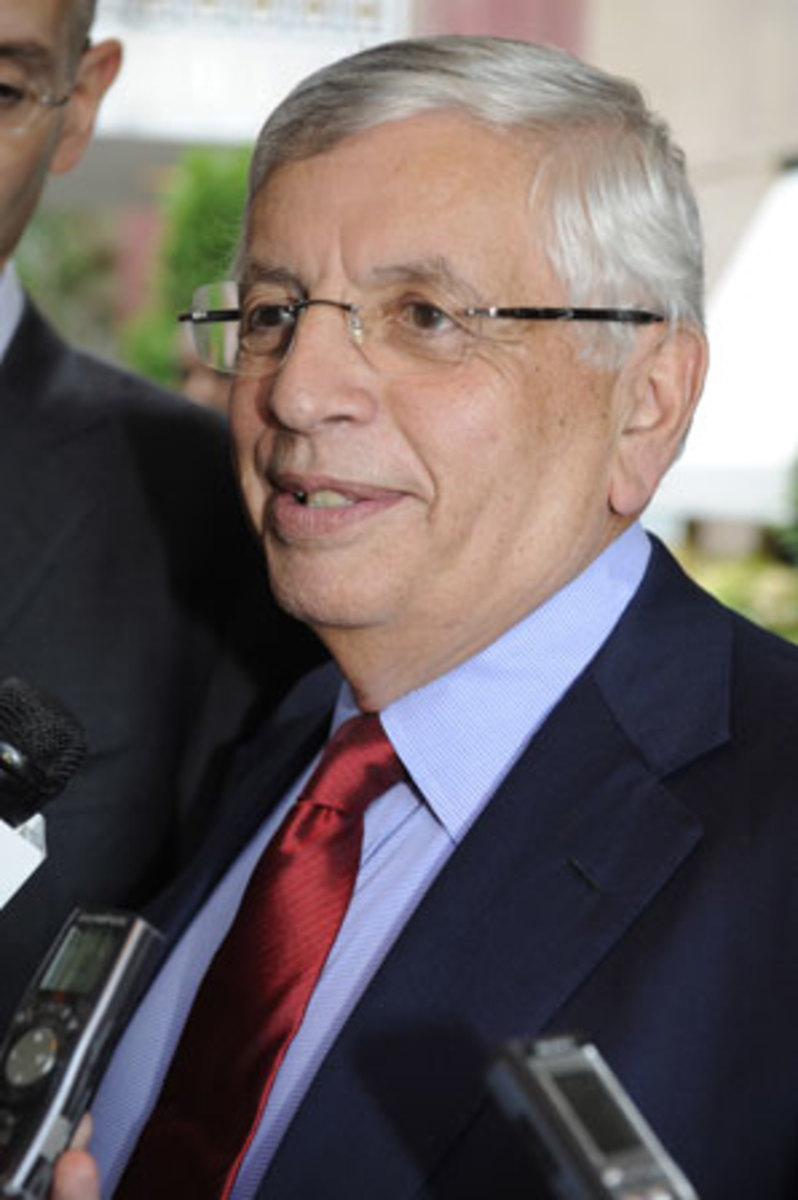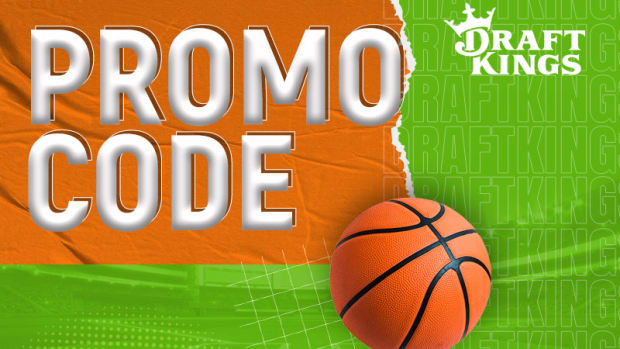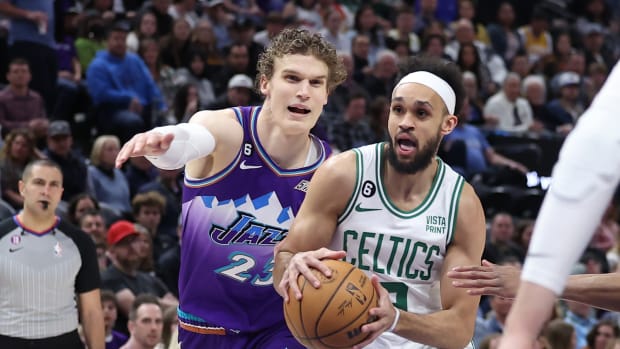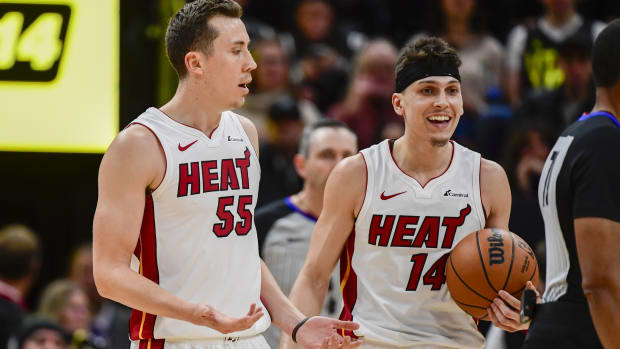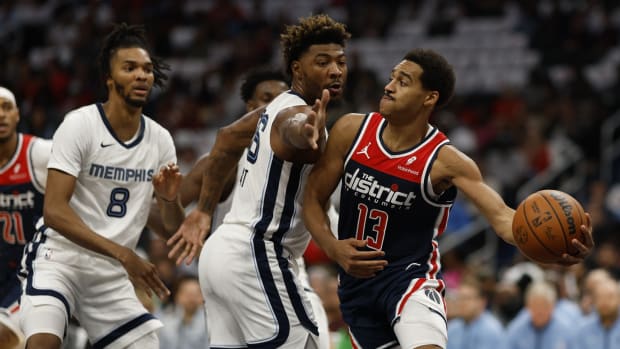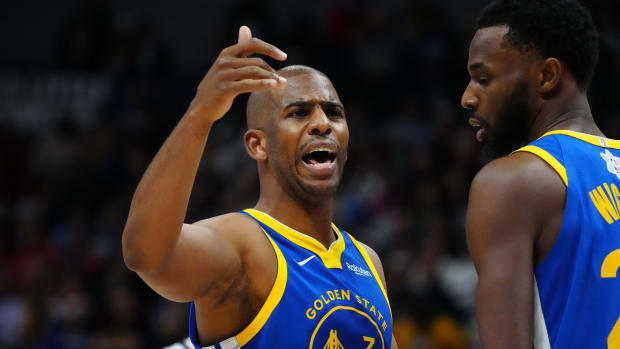Progress, however small, is finally made in NBA's labor negotiations
Imagine that.
Two parties that can't come to an agreement spending most of a business day locked in a room together. In some parts of the world, they call that negotiating. In the labor dispute between the NBA and National Basketball Players' Association, it's called progress.
First, the bottom line: There was virtually no news coming out of Wednesday's six-hour Manhattan meeting, which was just the second between the two sides since the lockout began on July 1. And while that might not sound promising, I would tend to disagree.
While the complicated context of this case still includes looming court cases and "nuclear" options like decertification, the focus should be on bargaining. Not on power plays or ways of gaining leverage or lawsuits, but on good, old-fashioned discussions. Only the involved parties know why there has been so little commitment on this front, but there's no better time than a month before training camps are set to open to change that awful tune.
Now the clock is ticking -- and loudly -- for another meeting. Friday, anyone?
Throughout the lead-up to the lockout and during the months since it has been in place, the industry experts with whom I frequently speak and respect most on this topic consistently say the same thing: A solution won't be found in a room full of hot air. The legal strategies have their merit (the most relevant at the moment being the union's claim with the National Labor Relations Board that is awaiting a decision), but there is simply no excuse for the fact that both sides have shown so little interest in holding frequent discussions.
They need to talk and talk often. And, as we finally saw on Wednesday, they need to talk in an environment that is historically known to be more productive in these sorts of situations.
The group was much smaller than in past meetings, which helps minimize the ego and maximize the productivity in the room. Commissioner David Stern was joined only by deputy commissioner Adam Silver, Spurs owner Peter Holt, NBPA executive director Billy Hunter, union president Derek Fisher and NBPA attorney Ron Klempner. There was no rhetoric like before -- no "Stand" t-shirts from 50-plus players in attendance like there had been in a late-June session, or post-meeting vitriol from Stern like there had been on Aug. 1. There was, however, a promise made by all to stop with the name-calling and home in on the task at hand.
That's why -- assuming these promises are kept -- this qualifies as a productive day on the labor front. Even if, as has been reported, there was no actual progress when it came to the issues, there was immediate talk afterward that more meetings have already been scheduled.
Which made me think of a Twitter friend who had a brilliant idea just the other day. In response to my tweet about how Hurricane Irene was proving problematic when it came to scheduling this very meeting, Aaron Bruski of NBC Universal tweeted, "Some form of video chat would be a suitable fix, no?"
In this golden age of technology, maybe Fisher doesn't have to cross the country every time the two sides are going to talk. Maybe they should be Skype-ing or FaceTime-ing two or three times a week as a way to bridge the gap between the more formalized sessions. It still isn't likely to save the season at its start, but perhaps the gap that matters most -- from the split of basketball-related income to the question of hard vs. soft salary caps and beyond -- might be bridged much sooner.
The frequency can only help with the chemistry, as the mountain of acrimony can get pretty high when there's a month between each meeting to speak only through the media.
Anything to keep this conversation going.






























